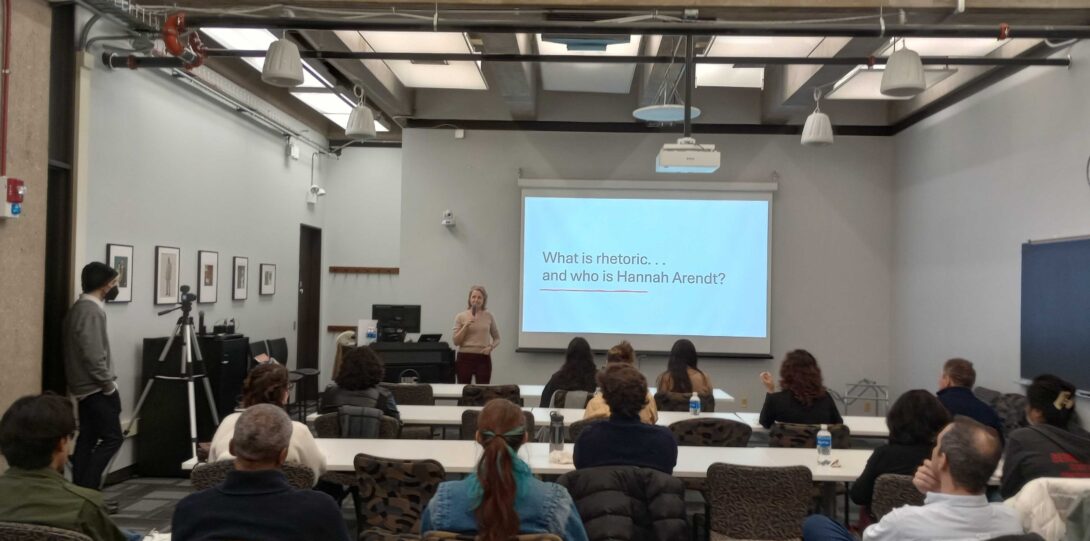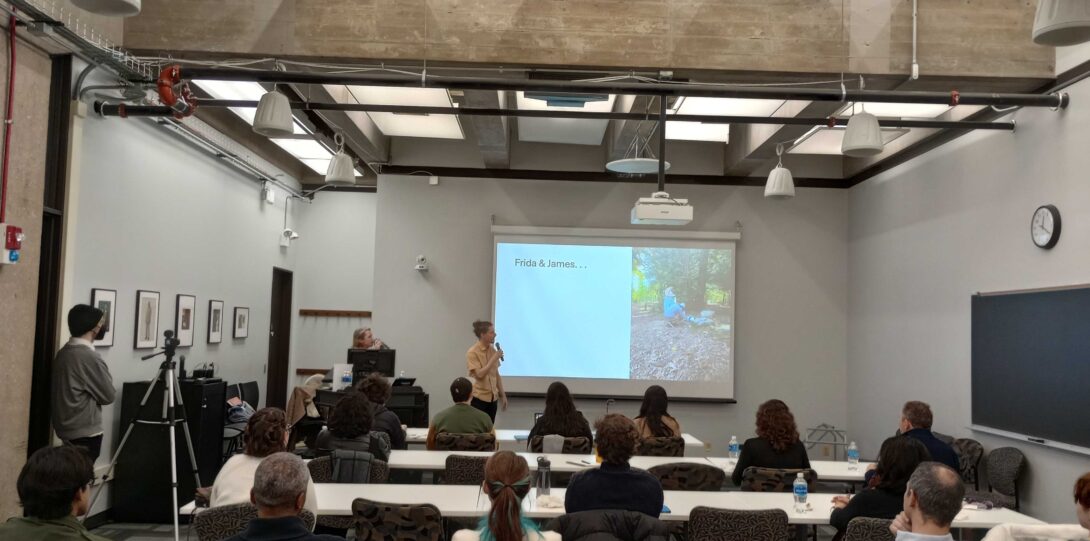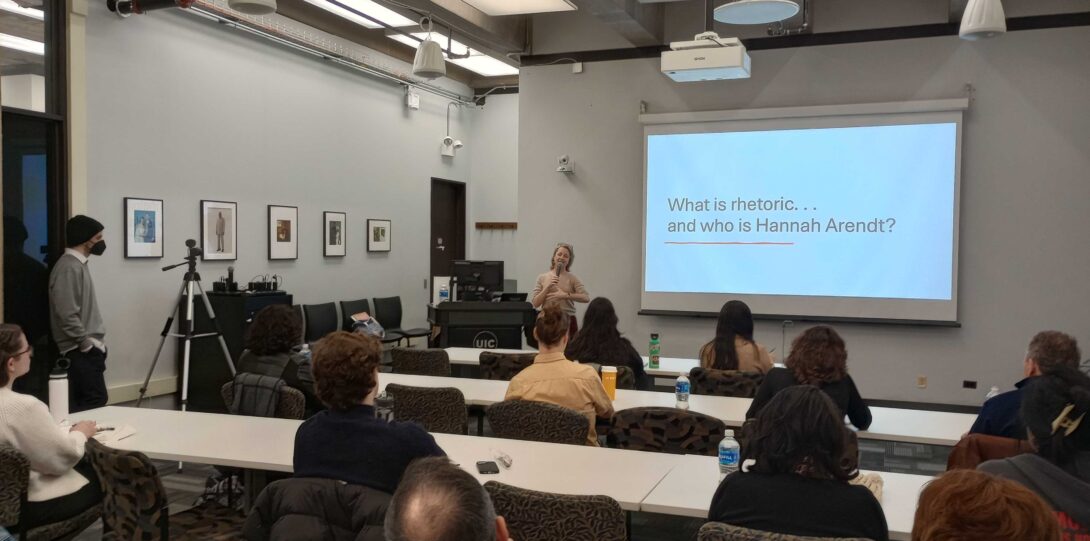“Hannah Arendt on Rhetoric: Democracy Under the Influence of Social Media” – A Civic Engagement Lunch Talk Follow-Up
On February 7th, 2024, Professor Robin Reames, PhD presented at IPCE's Civic Engagement Lunch Talk series held on campus in Daley Hall. She was accompanied by two of her graduate researchers, James Sharpe and Frida Sanchez-Vega. Their presentation was titled “Hannah Arendt on Rhetoric: Democracy Under the Influence of Social Media”.
Hannah Arendt had a lifelong preoccupation with the fundamental condition of human plurality and the fact that humans—not a human—“live on the earth and inhabit the world.” This fundamental condition of human plurality is definitive of all politics for Arendt. Speech, in this context, is indispensable; we exercise our plurality precisely by exercising our capacities of speech and action with other humans who can see and hear us but who are not identical to us. Starkly distinct from this is her concept of the "social," which Arendt defines as “The natural, merely social companionship of the human species." The “social” contains no trace of plurality; it makes humans identical to their biological needs. Political life thus underscores the human condition of plurality; social life erodes it.
Robin and her research team have been investigating the relevance of this basic observation to "social life" today as it is lived out in social media. Social “survival” on social media, is realized in the ever-intensifying quest of the “influencer” to be “liked,” “followed,” and retweeted. Even the basic actions of “liking” and “following” built into social media exhibit a conformist conceptualization of human speech and action, the ends of which are “influence,” imitation, a “following.” As Arendt herself put it, “Clichés, stock phrases, adherence to conventional, standardized codes of expression and conduct have the socially recognized function of protecting us against reality, that is against the claim on our thinking attention that all events and facts make by virtue of their existence.” Rather than the agonistic medium of our pluralism, speech in the social is a cache of such stock phrases, designed to inoculate us against social death and promote our social life in the form of a following. It is a litany-in-negative of all the things we do not and cannot say.
Dr. Reames and her team discussed various aspects of this research from the funding year--work conducted in the Hannah Arendt collection in New York, the Hannah Arendt Circle in Italy, the Persuasive Technology society in the Netherlands, and the Behavior Technology Lab at Stanford--and future work proposed for the Dangers and Opportunities of Technology initiative with the National Endowment for the Humanities.
Keep an eye out for James Sharpe and Frida Sanchez-Vega's research dissertations, an article entitled, “The Anxiety of Influencers: Hannah Arendt & the ‘Social’ of Social Media” authored by Sharpe and Reames, and Dr. Reames' upcoming book The Ancient Art of Thinking for Yourself (March 2024)
Follow the link below to watch the entire lunch talk. We thank Professor Reames and her team for their wonderful research that helps further our understanding of effective strategies and tools for civic engagement! View our events tab on our website to stay up to date on future Civic Engagement Lunch Talks.


